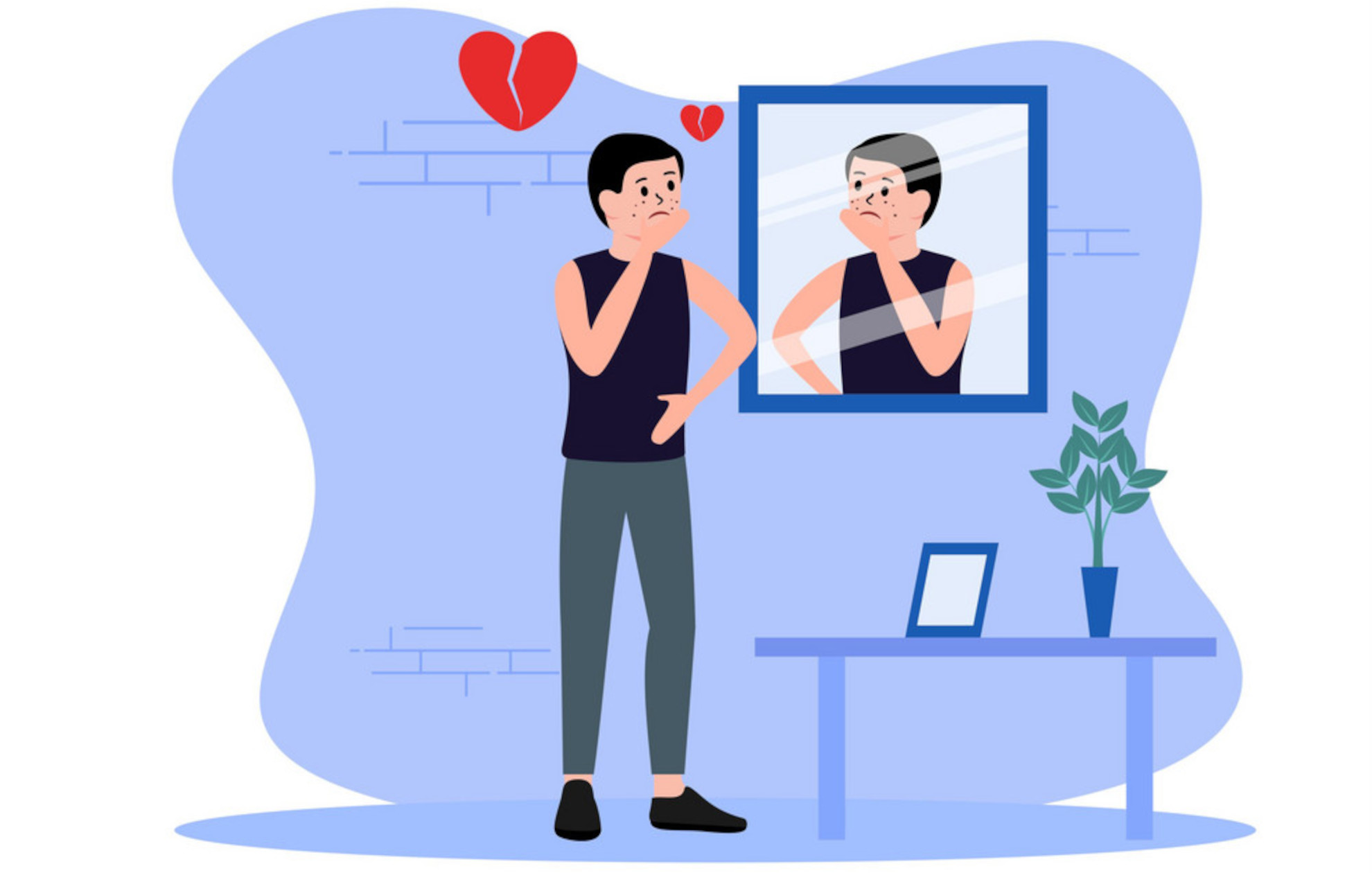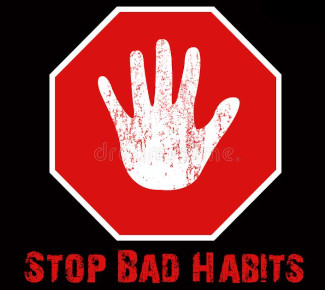How Does Self-Esteem Affect Your Betting?
As a sports bettor, how do you feel about your efforts and performance? Good? Bad? Just okay?
Chances are good that whatever answer you give, you might give similar answers regarding other aspects of your life. How you feel about your sports betting is going to be influenced by how you feel about yourself in general.
In this post, we are going to explore the topic of self-esteem and how it relates to sports betting in-depth.
We will explore the ways in which low self-esteem can undermine your betting, what causes poor self-esteem, and what you can do about it to enjoy a more successful and rewarding betting experience.

By the end of the post, you should have a pretty good idea of how you can get started tackling your own self-esteem issues.
To get started, let’s define self-esteem.
What is Self-Esteem?
Self-esteem, simply put, is how you feel about yourself.
To get more specific, your self-esteem refers to your cognitive beliefs and emotions about your underlying worth and value as a person.
While there are different ways of looking at self-esteem, it can be useful to break it down into a couple of components:
- How you feel about who or what you are.
- How you feel about how you do things.
It is possible for self-esteem to be high or low in both areas, or high in one and low in the other.
For instance, you could feel good in general about who you are as a person, but you may not like how you do things.
One more thing to mention about self-esteem is that how you think you see yourself may not be how you really do.
For example, on the surface, you could like yourself. You might be able to list a lot of things you are happy with about who you are. On a cerebral level, you have your own approval. You might be able to say something like, “If I were a character in a book, I’d like to read that book.”
But you could simultaneously believe that you are “different” somehow, or “cursed,” and that it is your lot in life to lose. You may feel like a perpetual outsider who cannot get the life you deserve.
That might not seem like a reflection of poor self-esteem, but it can be.
Such thoughts seem more to reflect the world and its outlook on you rather than your outlook on yourself. But do they?
There may be differences in your disposition, neurotype, interests, or abilities compared to people around you. But we live in a diverse world, and many people can make such a claim.
No one is really fundamentally “different” on an existential level, and however “cursed” you may feel, that is your belief about yourself, not the world’s view. Even if you are living as an outsider, it is not something latent to your very person. And even if you do not have the life you deserve, that may reflect misfortune, poor choices, or a combination — not a fixed existential reality that is woven from birth into the fabric of your being.
If you believe on a deep level that your misfortunes are because you are you, then you are asserting you have low worth. Even if you like yourself and feel things should be different, you are convinced that failure is inseparable from your identity.
How do I know all this? Because this is exactly the mindset that has held me back in my life.
I have always liked myself. On the surface, my self-esteem would seem fine. But I also believed I was fundamentally different, and that success, life, and joy were something meant for other people, not me. In short, I approved of myself, but still believed I was lesser than other human beings.
Poor self-esteem could look very different for another person. But the bottom line is that you need to really dig deep into what you believe, rather than just what is on the surface.
12 Ways Low Self-Esteem Can Impact Your Betting
Now that we have explored the concept of low self-esteem a bit as well as some of the sneakier ways it can present itself, let’s go over how it can impact sports betting. For each, we will then explain how raising your self-esteem could turn things around.
You Could Experience More Stress and Anxiety Around Betting.
One of the biggest ways low self-esteem can impact you on an everyday basis as a bettor is by constantly frying your nerves.
Since sports betting involves risk, making bets may always make you feel a little nervous. But if you are perpetually stressed and anxious about every wager you make, it could point toward issues with self-esteem.
When our self-esteem is low, we have no confidence in ourselves. We feel we are incapable of making smart wagers. We also might believe we cannot handle it if we lose. Naturally, that is going to make anything risky seem extra scary.
How Higher Self-Esteem Can Help
With higher self-esteem, you would know:
- You are capable of making smart and successful wagers.
- Losses are a regular part of sports betting.
- You can handle it if something goes wrong.
- Not every loss points toward a problem with you or your strategy.
- Failing does not make you a failure.
- Successes are built on failures.
- Even if you are not currently skilled enough to wager profitably, you are capable of learning to do so.
- If you are willing to put in the work, you deserve success as much as anyone else.
- You are as capable of success as anyone else with your same basic set of abilities and resources.
Think how much less scary betting would feel if you knew those things or even were able to believe them most of the time!
You would have anxiety around the influence of luck, but not around your involvement in your betting.
You Might Think You Are Not Doing As Well As You Actually Are.
Low self-esteem can cause you to underestimate your performance. How we view ourselves tends to affect what gets our attention and what does not. Basically, if you look at yourself and the world through dark glasses, everything you see is dark. You miss the light.
If you spend a lot of time getting down on yourself for your losses, but then you gloss over your wins, that may be a sign that you are underestimating your abilities.
How Higher Self-Esteem Can Help
When you have a more positive outlook on yourself, that redirects your attention. You notice your victories alongside your defeats. You take the time to acknowledge and celebrate your wins. You know you worked hard for them and deserve them.
And as for those good days, why not check out BetOnline where you can get yourself a nice 50% Welcome Bonus of up to $1,000 when you use the code BOL1000 and make your first deposit.
You Could Throw Working Strategies Out the Window.
One of the dangers of underestimating your performance is that it can lead to poor decision-making.
Say you have low self-esteem with a dose of perfectionism thrown in.
Let’s say your current strategy has you winning 51% of the time.
You are actually doing really well. But you keep thinking, “It isn’t 55%. It needs to be higher. I’m barely above 50%. This isn’t a stable situation at all. I have to do better. I am never going to make it like this.”
In response to these thoughts, you toss out the strategy you are using and go back to the drawing board in search of the holy grail. Maybe you have even done this repeatedly. Each time you do, you throw away good work that you could and should be building upon.
How Higher Self-Esteem Can Help
With higher self-esteem, you might have more realistic and helpful thoughts. You may think, “It isn’t 55%. I want it to be higher, but being above 50% is actually really good. Most people never get this far. I can do even better than this if I keep working on it. I am on the right track.”
This type of thinking encourages you to stick with what is working rather than starting over again and again.
If you keep on the path you are on, you may eventually be able to raise your win percentage to 52%, then 53%. Whether or not you hit 55%, you will keep honing your abilities. This in turn will help you with maintaining or increasing your profits.
You Could Be Overly Susceptible to Outside Influence.

Outside influence? Yikes!
As an adult you still shouldn’t give into “peer pressure”!
(Unless it makes you seem cooler of course!)
When your self-esteem is low, it can be difficult to trust your own judgment. You may question your perception of situations, and assume that others are more knowledgeable, skilled, insightful, or stable than you.
In such cases, you could have a hard time saying “no” to suggestions from others, even if you think they will not suit you.
A friend might suggest, for example, that you switch from using your current betting strategies to using theirs instead, or that you radically alter your schedule even though you are already probably on the right track.
Even though you are aware that this might be a waste of your time, low self-esteem could cause you to think that they probably know better than you and that you should do what they say.
To take a different example, maybe you love betting on sports, but your spouse is not a fan. If you have low self-esteem, each time they make a comment, you could feel a sense of shame. Over time, this could lead you to give up what you are passionate about.
How Higher Self-Esteem Can Help
When your self-esteem is high, you can stand up better to peer pressure. In the examples above, you could keep working on your strategies, knowing that your friend may not know what is best for you. You also would be able to better withstand the pressure from your spouse, and keep betting even if they do not approve.
You might lose motivation and spend long time periods struggling to bet.
Research suggests that low self-esteem not only can contribute to anxiety but also depression. If you become depressed, it may be hard for you to stay motivated to keep up with your sports betting routine.
During rough times, you might give up trying to bet for weeks or months on end. Each time you do, you may forget a lot of what you have learned. You might then find yourself having to start all over again repeatedly, never making lasting progress toward your goals.
How Higher Self-Esteem Can Help
As with anxiety, higher self-esteem may or may not resolve your depression (there may be other factors at play). But there is a good chance your symptoms of depression will decrease or be more manageable when you feel better about yourself.
When you are less depressed, it will be easier for you to engage with activities you care about. You will be able to take a more consistent approach to your sports betting, and you will be less likely to fall into a state of burnout. This is very important if you are trying to develop your skills to a professional level.
You Might Do Things For Other People Instead of For Yourself.
Poor self-esteem tells us that we have little worth. If you happen to operate from the life position, “I’m not OK, but other people are OK,” you may feel other people have more inherent worth than you.
This belief can cause us to put other peoples’ needs and desires ahead of our own as a rule. So, what motivates us is not to do things for ourselves, but to do them because others think we should.
In betting, this could take the form of setting goals based on someone else’s preferences, rather than your own.
Say, for instance, that you really just like betting for fun. But your friend bets for a living, and thinks you should learn to do the same.
In efforts to satisfy your friend’s vision for your future, you try to become a professional bettor but you are never really into it. As a result, you get nowhere, but you pour all kinds of time and energy into it. Worse, you start to forget that you actually enjoy betting.
How Higher Self-Esteem Can Help
When you realize that your own worth is the same as anyone else’s, you are more likely to pattern your life around your own needs.
In our example, you might try betting for a living to see if you can do it. But if you do not like it, you feel secure enough to tell your friend that you are going to go back to betting for fun. You know that your goals and priorities are as valid as your friend’s and that you deserve to be happy, whatever form that takes.
Stories About Other Bettors Winning May Discourage You Instead of Encouraging You.

Just don’t worry about what that guy who always seems like he’s winning is doing…
How do you feel when you read about a sports bettor who is able to have a successful full-time income from wagering? Do you imagine yourself achieving similar success? Or do you feel a mixture of envy and shame?
Low self-esteem can make it hard to be happy about other people’s victories, or take any sort of encouragement from them. We may think things like, “Of course, that person is doing well. But some of us just are not meant to win.”
Alas, thoughts and feelings like these can drag you down into the dumps instead of lifting you up.
How Higher Self-Esteem Can Help
When your self-esteem is higher, hearing about other people making it with sports betting can be reassuring and encouraging. You might think, “That person is profiting so I can too.” That inspiration can help motivate you toward success.
Your Sense of Control In Your Life Could Be Lacking.
As we have already discussed, low self-esteem can leave you feeling like you have no clue what you are doing and are incapable of getting by.
Naturally, feeling that way means you also have a very external locus of control. You believe that external forces and factors determine your fate, rather than what is inside you.
Such a belief will leave you feeling like you have little to no control of your own existence. Along with provoking anxiety, that belief can make it very easy to go on tilt.
Every gambler knows how dangerous tilt is, and that it can empty out your bankroll in a flash.
How Higher Self-Esteem Can Help
As you raise your self-esteem, you will learn to trust in your capabilities. You will know that some things are always going to be outside of your control, but that many outcomes are within your power to influence.
When you do not feel like life is spinning out of control, you are less likely to go on tilt, even during a losing streak.
You are more likely to make rational decisions like maintaining low stakes or taking a break to analyze why you keep losing.
You Could Experience Defensiveness and Lower Self-Awareness.
Another consequence of low self-esteem that can be detrimental to sports bettors is the defensive attitude that can come with it.
Even though you may not feel good about yourself, sitting with that feeling may be unbearable. As such, you may seek to avoid confronting it at all costs.
If someone points out a mistake you have made, you may lash out instead of examining your actions.
For example, let’s say you did go on tilt recently after losing a string of wagers. Your friend points out to you that you behaved irrationally, and that it is your fault the losses continued and you blew through your funds.
But you do not want to feel bad about yourself, so you snap back, “All of those bets were perfectly justified by my system.”
The problem with low self-esteem is that it causes us to conflate guilt over our actions with shame about who we are.
Instead of just feeling bad about our actions but realizing we are OK as people, we jump straight to feeling like we are not OK as people, and our mistakes are unacceptable.
But everyone makes mistakes, and confronting those mistakes is how we learn. So, if you get defensive and refuse to examine what you did wrong, you are unable to learn and grow. You then keep repeating those mistakes in the future.
How Higher Self-Esteem Can Help
Higher self-esteem will help you look directly at your betting mistakes without feeling like you are “lesser” as a person because you made them.
You will be able to develop an awareness of your strengths and weaknesses and adjust your actions accordingly.
As a result, you will be able to learn effectively, improving your approach and ultimately your bottom line.
You Could Self-Sabotage.
While some people react to their poor self-esteem through defensiveness and avoidance, others cannot seem to stop staring at their negative emotions.
Let’s take the example again of the bettor who goes on tilt. If they have a self-sabotaging streak, they might not go on the defensive afterward. When their friend confronts them about their mistake, they might instead reply, “Yes, I just cannot seem to stop doing these things. I know I am a screw-up. Here I have gone and proved it yet again.”
Indeed, on a covert level, this bettor might even have set themselves up to fail. Consciously, they may have been trying to win, but unconsciously, they might have been looking to lose. They might be “proving” to themselves repeatedly how much of a screw-up they are.
Why would anyone do this? Perhaps their parent told them a lot as a child, “You are a screw-up.”
Naturally, no child wants to feel this way. Nor do adults! But it becomes familiar, a road map of where that person feels they belong in the family, and in the world at large.
As a result, they continue to follow that road map as they get older, playing out the same dramas and telling themselves the same stories.
How Higher Self-Esteem Can Help
Improving self-esteem can help gamblers break these types of self-sabotaging patterns. Those enhancements to self-esteem must necessarily go hand in hand with increasing awareness of the negative beliefs about ourselves that were ingrained in childhood.
To continue our example, if a gambler identifies “You are a screw-up” as a message they repeatedly received in childhood, they can start questioning its validity.
Once they stop defining themselves that way, the covert motivation to keep proving to themselves that it is true may fall away. They can then wager without getting in their own way.
You Could Experience Lower Productivity and Burnout.
As we have already discussed, low self-esteem can promote anxiety, stress, and depression. Having to battle through one or more of these to try and build a betting career can be exhausting.
That means that it can be hard to work efficiently each day toward one’s goals. And over time, it can become hard to work at all. Eventually, one depletes one’s energy and mental resources, with the result of burnout.
How Higher Self-Esteem Can Help
By bolstering self-esteem, you may be able to reduce some of the effects of stress, anxiety, and depression. It may be easier to focus on your work and remain productive, motivated, and dedicated. You can make faster progress toward your betting goals.
You Could Develop Problem Gambling Behaviors.
Low self-esteem is associated with problem gambling behaviors. Interestingly enough, it also is linked to cognitive distortions, and some research indicates that it may be particularly problematic for female gamblers.
This study reports, “The relationships between impulsivity, self-esteem, irrational gambling belief, and problem gambling differed for males and females. For females, greater impulsivity and lower self-esteem predicted higher irrational gambling belief, while higher irrational gambling belief predicted more problem gambling. For males, greater impulsivity predicted higher irrational gambling belief, and higher irrational gambling belief predicted more problem gambling”
The research continues to say that bettors who engage in problem gambling behaviors tend to have lower self-esteem and higher impulsivity.
How Higher Self-Esteem Can Help
As an association exists between problem gambling and low self-esteem, it follows that raising self-esteem should help to reduce the chances of problem gambling behaviors.
It is not too hard to guess why low self-esteem might increase problem gambling behaviors.
As the study mentioned, one mediating factor could be “irrational gambling belief,” i.e. cognitive distortions.
As we mentioned earlier, low self-esteem might also increase feelings of being out of control, which could play into tilting behaviors.
What Causes Low Self-Esteem?
Now you know why self-esteem is so important to assess if you gamble. Poor self-esteem can hold you back from success or even lead to problem gambling, but good self-esteem may help you stress less and profit more.
But what causes self-esteem to be low in the first place? Here are some common roots and factors.
Critical and Invalidating Upbringing
One of the biggest and most insidious causes of low self-esteem is receiving a lot of criticism and invalidations when you are young.
If your caregivers repeatedly give you messages that you are lesser, not worthy, incapable, or without value, on a deep-seated level, you may still believe those messages long after you grow up.
While the most damaging of these messages tend to come from parents and other direct caregivers, receiving such messages from teachers, coaches, spiritual leaders, and other authorities can also be destructive.
Other Forms of Childhood Adversity
Along with direct emotional abuse, neglect in childhood may lead to poor self-esteem. If, as a child, your efforts to get the attention and care you need from your parents do not lead to results, you may learn helplessness (this could even happen if your parent is sick, working, or disabled and simply cannot be there for you).
If you are bullied by other kids growing up, that also can damage self-esteem. This is particularly likely to be the case if nobody ever intervened. The message you received from bystanders was that you were not worth standing up for.
Academic Struggles

All kidding aside, we don’t want to see you become this guy, that would suck!
Children can get a sense of accomplishment from their performance at school. But if you were unable to thrive academically because of inadequate support, you might have come to believe you were not able to succeed.
For instance, maybe you have ADHD, and when you were a kid, no one noticed or cared. Instead of giving you learning options that were suitable for your neurotype, they said you were lazy or stupid.
In adulthood, you might still think that you are too “lazy” or “stupid” to learn anything, including how to bet like a pro.
In point of fact, the only failures during your childhood in this scenario were on the part of your parents and teachers. Not only did they fail to remove obstacles from your path, but they also added to them.
Ongoing Invalidation
It is not unusual to receive invalidation as an adult from bosses, co-workers, family members, partners, or others. Being subject to any sort of abuse from any party as an adult can also damage self-esteem.
General Life Stress or Lack of Control
Any life situation that is deeply stressful and takes away control can cause self-esteem to drop. For example, if you have spent a long period of time unemployed or if you suffer from a chronic disease, those can both take a toll on how you perceive yourself.
Any Form of Trauma
Any of the situations we have discussed above could all generate trauma. But any other traumatic life experience could also lead to reductions in self-esteem, including those not mentioned here.
Adverse Social Messages
Finally, many people have a hard time maintaining their self-esteem when faced with rigid social norms and expectations with which they either cannot comply or do not wish to comply.
We receive these messages through television, the internet, movies, and other forms of media.
A lot of these seem surprisingly innocuous. Think how many movies you watched where over 2 hours of screen-time, a character went from being a total newbie at something to be a massive success. Real-life does not work that way. When we expect it to, we can get really down on ourselves when it does not pan out.
How Do You Raise Self-Esteem?
You know why it is important to try and boost low self-esteem as a sports bettor. You also now understand more about why your self-esteem might be low, to begin with. But what can you do about it? Here are a few suggestions.
Find the Sources Of Your Low Self-Esteem.
A great place to start is to try and identify the reasons your self-esteem may be low. Perhaps some of what we talked about in the section above resonated with you. If so, you may already be on the right track. The more you know about where your low self-esteem came from, the more specific steps you can take to address it.
Discover Your Essential OK-Ness.
Another good step to take is to try and get to a place where you can acknowledge that your basic worth and value as a human being are solid at all times, regardless of circumstance.
In transactional analysis, psychologists call this knowing you are “OK.” The healthiest life position to operate from is one where you believe you are OK and other people are OK too.
It is important to understand this is not the same thing as saying that all actions are OK. You can do bad things and make mistakes and still be OK as a person.
Dismantle the Negative Messages You Have Received.
Once you know you are OK, it becomes easier to start breaking down the negative messages you ingrained throughout your life.
Take the example we gave earlier of a parent telling a child, “You are a screw-up.”
Say that happened to you. Once you know you are OK, you will realize that “screw-up” is not a concept that can be attached to you as a person. Maybe you screwed up, as in an action you did was a mistake but that does not make you a screw-up.
Plus, everyone screws up, especially children. Your parent essentially judged your entire person negatively just for being a child.
After you recognize that, the message will have less power over you, and your self-esteem will improve.
If you previously had a “need” to prove to yourself repeatedly that your parent was right by sabotaging your own wagering, it should reduce or go away.
Treat Traumas.
If low self-esteem is the result of traumas, treating your traumas may help you feel better about yourself. Doing the kind of cognitive exploration above can help, but there are plenty of other avenues you can explore as well.
Validate Yourself and Surround Yourself With Validating People.
You can use affirmations to send yourself positive messages to counteract the negative ones. For instance, if you have a hard time feeling like you are not a screw-up, you can remind yourself each day as you sit down to bet, “I am a capable person who can succeed.”
Glancing over your betting stats daily can be a big help as well once you start achieving a profitable bottom line.
If you have been spending time with people who reinforce your poor self-esteem, try spending more time instead with people who openly recognize your positive qualities and accomplishments.
While you are at it, consider validating and supporting other people more openly and freely yourself. You may find that doing so empowers you in your relationships and makes them more rewarding. Plus, as you validate others even on days they are not at their best, it might be easier for you to do the same for yourself when you are having a hard time.
Identify and Avoid Cognitive Distortions.
Low self-esteem can make it harder for us to think rationally about ourselves and our situations. But it can go the other way around too. When we look at ourselves through a lens of distorted thinking, doing so can harm our self-esteem.
While you are at it, you might also enjoy checking out this list of cognitive biases that can be particularly ruinous to gamblers.
Get Away From the Habit of Shame.

We know it’s really not that easy, but something we’ve all got to work on!
You know how we just talked about how you can be OK even if you took actions that were not OK, like blowing your entire bankroll by going on tilt?
Being able to recognize the distinction between yourself and your actions can be critical in getting away from the toxicity of shame.
Feeling guilty about a mistake is one thing. It may be an unpleasant emotion, but it is there to tell you, Don’t do that again!”
Feeling ashamed is different because it is tied to your sense of who you are. You are not telling yourself, “Don’t do that again” with shame. Instead, you are telling yourself, “Doing things like this is who you are. What an awful person that makes you.”
In other words, it is something you believe about your core identity and thus perceive as unyielding, inflexible, and permanent.
Shame does not help you evolve. It just keeps you trapped in the same loop. Even as you reprimand yourself for your failures, you likely feel almost as if you are doomed to repeat them.
Poor self-esteem and shame go hand in hand. You can feel guilty though and still have good self-esteem.
Imagine if, in the future, you did not beat yourself up for making a mistake like going on tilt. Instead, picture if you simply realized “Okay, that was a huge mistake I should not repeat. Thankfully, I do not have to.”
Find Ways to Address Stressful Life Situations, Including Getting Help When You Need It.
As we mentioned, sometimes you might have low self-esteem in part because genuinely scary or painful things have happened to you. You might still be in a situation in which you have little or no control.
Even if that situation has nothing to do with your betting, it may make you feel the same is true when you wager.
So, one thing that can help is to try and take action to improve the situation that has you feeling trapped or out of control.
If you do not feel like you can do that by yourself, consider asking for help (yes, that can be tough when your self-esteem is low).
For example, if you have been jobless or underemployed for a long time, visit a temp agency or community center that might be able to help you find employment. If you are struggling with your mental health, see a therapist. In fact, a therapist can also help directly with your self-esteem, and give you other perspectives and ideas that are not in this post.
With assistance, you might be able to get back on track. In doing so, you can regain some of your sense of agency, which will help rebuild your self-esteem.
Pursue Small Successes.
We talked a bit about how sometimes people try to “prove” negative beliefs to themselves by sabotaging their own efforts.
Just as “proving” those negative beliefs can reinforce poor self-esteem, the opposite is possible too. You can “prove” positive beliefs to yourself that help you raise your self-esteem.
The easiest way to do that is to set goals that are realistically attainable within a specific timeframe—preferably one in the not-too-distant future.
The trick is to make these goals challenging enough that achieving them will help expand your sense of what you are capable of, but not so challenging that reaching them is unlikely.
Some examples might include:
- Aiming for a modest improvement in a betting statistic.
- Committing to a daily schedule where you spend at least 20 minutes researching and/or wagering.
- Not breaking your money management rules for the next month.
- Testing some number of betting strategies out within the next three months.
- Earning a reasonable amount of money betting within the next six months (not a million dollars).
Each time you achieve one of these small goals, it will help you create a new narrative about yourself—one where you are a winner who is actively moving forward in life.
When you do achieve a goal, celebrate! Treat yourself to something small but nice. You worked hard and proved yourself.
Plus, if you know a reward is coming if you succeed, you may work harder and be more disciplined, so it can work as a great motivator.
Conclusion: Raising Your Self-Esteem Can Empower You for Betting Success
Many gamblers go through their lives with poor self-esteem and do not think much of it. But each day, their lack of belief in themselves and worth negatively influences their betting decisions and outcomes.
But now you understand how poor self-esteem develops and what you can do about it. It takes time and hard work to raise your self-esteem, but once you do, you should find that it goes a long way toward helping you pursue your goals as a sports bettor.
And Perhaps You’d Also be Interested in These As Well:


